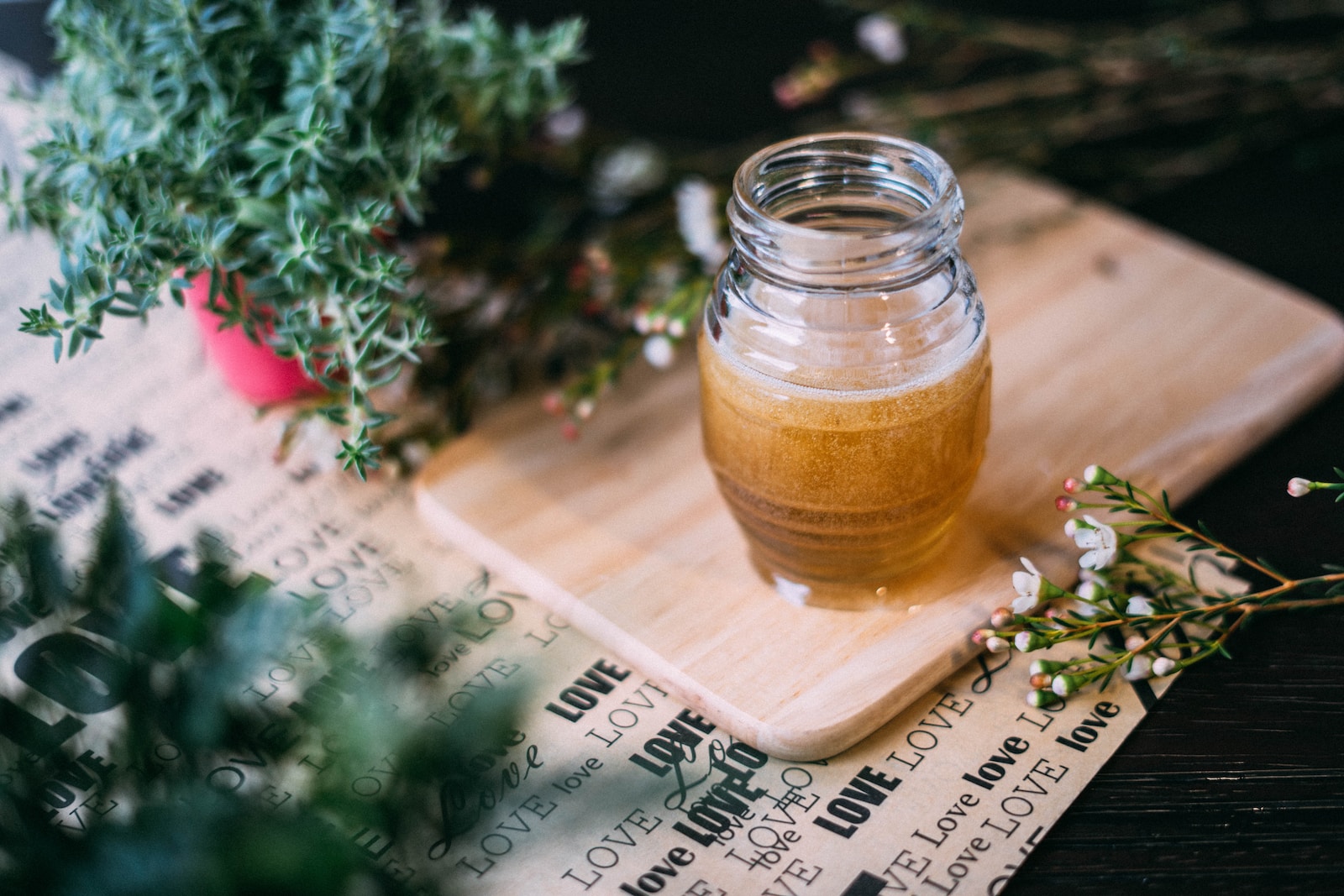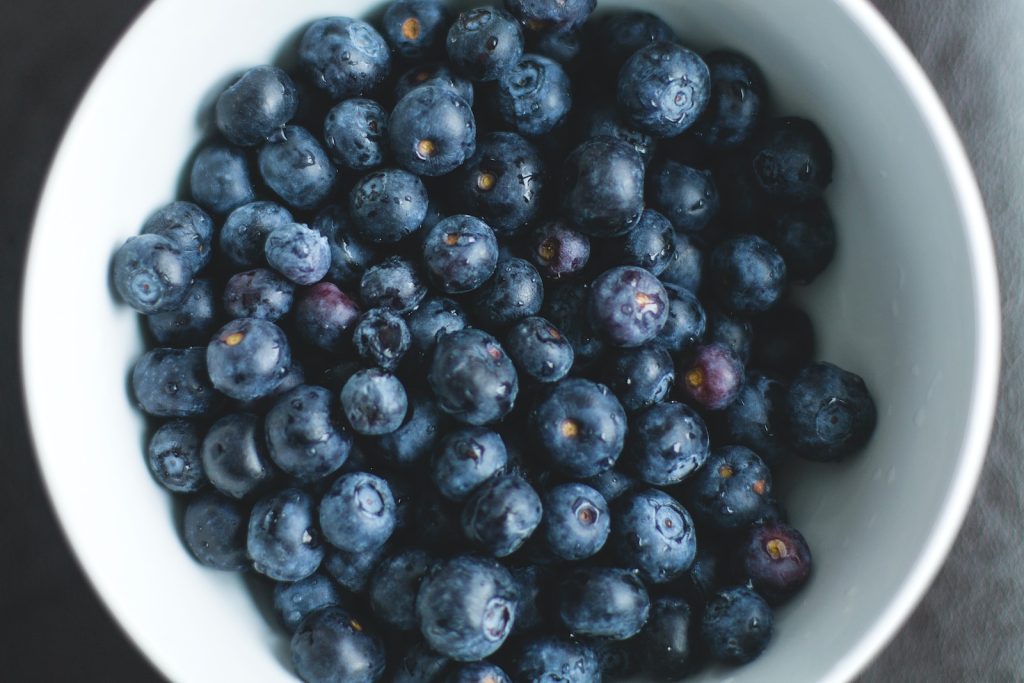Unlock the Secrets: Natural Remedies for Remarkable Digestion
Unveiling Natural Remedies for Enhanced Digestion: Are you tired of feeling bloated and uncomfortable after meals? Look no further!
We’ve got the ultimate guide to unveiling natural remedies for enhanced digestion.
From the power of probiotics to the soothing effects of herbal tea, we’ll show you how to improve your digestive health in no time.
Say goodbye to digestive issues and hello to a happier gut. Get ready to discover the secrets to a healthier, more efficient digestive system.
Key Takeaways
- Probiotics and fermented foods, such as yogurt and sauerkraut, can restore the natural balance of bacteria in the gut microbiome and improve digestion.
- Herbal remedies like peppermint tea and ginger tea can relieve indigestion, bloating, and stomach cramps.
- Mindful eating and portion control, including chewing food thoroughly and using smaller plates, can aid in digestion and prevent overeating.
- Increasing fiber intake through high-fiber foods like fruits, vegetables, whole grains, and legumes can promote regular bowel movements and nourish beneficial gut bacteria.
The Role of Probiotics in Digestive Health
When it comes to improving your digestive health, incorporating probiotics into your diet can play a key role.
Probiotics are live bacteria and yeasts that are beneficial for your gut health.
They work by restoring the natural balance of bacteria in your gut microbiome, which is essential for proper digestion and overall well-being.
Your gut microbiome is a complex ecosystem of microorganisms that resides in your digestive tract.
These microorganisms play a crucial role in breaking down food, absorbing nutrients, and maintaining a healthy immune system.
However, factors such as poor diet, stress, and certain medications can disrupt the balance of your gut microbiome, leading to digestive issues.
By consuming probiotics, either through supplements or fermented foods, you can introduce beneficial bacteria into your gut.
These bacteria help to improve digestion by enhancing the breakdown of food and the absorption of nutrients.
They also help to strengthen the lining of your intestines, reducing the risk of leaky gut syndrome and inflammation.
Fermented foods, such as yogurt, sauerkraut, and kimchi, are excellent sources of probiotics.
These foods undergo a natural fermentation process, during which beneficial bacteria are produced.
Incorporating these foods into your diet can not only improve your digestive health but also boost your immune system and promote overall well-being.
Herbal Tea Remedies for Digestive Issues
Unveiling Natural Remedies for Enhanced Digestion: If you’re experiencing digestive issues, herbal teas can provide natural remedies to help alleviate discomfort. Incorporating herbs into your tea can have a soothing effect on your digestive system and promote overall digestive health. Here are four herbal teas that are known for their digestive benefits:
| Herbal Tea | Key Benefits |
|---|---|
| Peppermint Tea | Relieves indigestion, bloating, and stomach cramps |
| Ginger Tea | Settles the stomach, reduces nausea, and aids in digestion |
| Chamomile Tea | Calms the stomach, reduces inflammation and promotes relaxation |
| Fennel Tea | Relieves flatulence, bloating, and stomach spasms |
Peppermint tea contains menthol, which helps to relax the muscles of the gastrointestinal tract, easing digestion issues.
Ginger tea has anti-inflammatory properties that can soothe an upset stomach and improve digestion. Chamomile tea is known for its calming effects on the stomach, reducing inflammation, and promoting relaxation.
Fennel tea is particularly effective in relieving flatulence, bloating, and stomach spasms.
To incorporate these herbs into your tea, simply steep the desired herb in hot water for about 5-10 minutes. You can also mix different herbs to create a blend that suits your taste and digestive needs.
Remember to consult with a healthcare professional before incorporating new herbs into your routine, especially if you have any underlying health conditions or are taking medication.
Enjoy a cup of herbal tea to support your digestive health naturally.
Incorporating Fermented Foods for Improved Digestion
To improve your digestion, start incorporating fermented foods into your diet.
Fermented foods have been consumed for centuries and are known for their numerous health benefits. One of the main reasons why fermented foods are beneficial for digestion is because they are rich in probiotics.
Probiotics are live bacteria and yeasts that are good for your gut health. They can help to balance the bacteria in your digestive system, promoting a healthy gut environment.
When foods undergo fermentation, the natural sugars and carbohydrates in them are broken down by bacteria and yeasts.
This process creates lactic acid, which not only gives fermented foods their tangy flavor but also helps to improve digestion.
Lactic acid acts as a natural preservative and aids in the breakdown of food in the gut.
Some common examples of fermented foods include sauerkraut, kimchi, kefir, yogurt, and kombucha.
These foods can easily be incorporated into your daily diet. For instance, you can add sauerkraut or kimchi to your sandwiches or salads, have a cup of yogurt as a snack, or enjoy a glass of kombucha with your meals.
Mindful Eating for a Healthier Digestive System
To improve your digestive system, it’s important to practice mindful eating. One key aspect of this is taking the time to chew your food thoroughly.
Chewing your food well helps break it down into smaller pieces, making it easier for your digestive system to process and absorb nutrients.
Additionally, practicing portion control and slowing down your eating pace can also contribute to a healthier digestive system.
Importance of Chewing
Chewing plays a vital role in maintaining a healthier digestive system.
The science of mastication reveals that the process of thoroughly chewing your food has numerous benefits for your overall well-being.
One of the key benefits of mindful chewing is that it aids in the digestion and absorption of nutrients. When you chew your food properly, it breaks down into smaller particles, allowing digestive enzymes to work more efficiently and extract essential nutrients.
Moreover, chewing stimulates the production of saliva, which contains enzymes that kickstart the digestion process. This helps prevent digestive issues such as bloating, indigestion, and constipation.
To emphasize the importance of chewing, let’s take a closer look at the table below:
| Benefits of Chewing | |||
|---|---|---|---|
| Enhances digestion | Promotes nutrient absorption | Reduces bloating | Prevents constipation |
Incorporating mindful chewing into your eating habits is a simple yet powerful way to improve your digestive health and overall well-being.
So, take your time, chew your food thoroughly, and savor each bite for a happier and healthier digestive system.
Portion Control Benefits
You can experience significant benefits by practicing portion control and mindful eating for a healthier digestive system. Here are some tips to help you get started:
- Start by using smaller plates and bowls: This simple trick can help you control your portion sizes without feeling deprived.
- Pay attention to your hunger cues: Eat when you’re hungry and stop when you’re satisfied. Mindful eating involves listening to your body’s signals.
- Slow down and savor your food: Eating slowly allows your body to properly digest the food and can help prevent overeating.
- Avoid distractions while eating: Turn off the TV and put away your phone. Being fully present during meals helps you focus on portion sizes and prevents mindless eating.
- Practice portion control when eating out: Split meals or ask for a takeout container to portion out leftovers for later.
- Be mindful of liquid calories: Limit sugary drinks and alcohol, as they can add unnecessary calories to your diet.
Slow Down Eating
When it comes to improving digestion, it is important to slow down your eating pace and practice mindful eating.
Mindful chewing and portion control are two key aspects of this approach. Mindful chewing involves taking the time to thoroughly chew your food, allowing it to mix with saliva and breaking it down into smaller particles.
This not only aids in digestion but also helps in nutrient absorption.
Additionally, portion control plays a crucial role in maintaining a healthier digestive system. By being mindful of the amount of food you consume, you can prevent overeating and the associated digestive discomfort.
Taking smaller bites, putting down your utensils between each bite, and savoring the flavors can all contribute to a more mindful eating experience, leading to improved digestion.
The Benefits of Ginger for Digestive Troubles
If you’re looking for a natural remedy to ease your digestive troubles, ginger might just be the answer.
Ginger has been used for centuries to relieve indigestion and promote healthy digestion.
It contains compounds like gingerol, which have anti-inflammatory properties that can help reduce inflammation in the digestive tract. Incorporating ginger into your diet or consuming it as a tea can provide relief from symptoms like bloating, gas, and stomach discomfort.
Ginger for Indigestion Relief
Ginger offers numerous benefits for relieving indigestion and improving digestive troubles.
Incorporating ginger into your diet can help alleviate symptoms such as bloating, gas, and stomach discomfort. Here are some ways ginger can aid in indigestion relief:
- Ginger has been used for centuries in traditional medicine to alleviate nausea and vomiting. It can be especially helpful for those experiencing morning sickness during pregnancy or motion sickness during travel.
- Consuming ginger tea or ginger-infused water can help stimulate digestion by increasing the production of digestive enzymes. This can aid in the breakdown of food and prevent indigestion.
- Adding ginger to your meals or incorporating it into recipes such as stir-fries, soups, or smoothies can provide natural relief for indigestion. Its anti-inflammatory properties can also soothe the digestive tract and reduce inflammation.
Anti-Inflammatory Properties of Ginger
By reducing inflammation in the digestive tract, ginger can provide relief for digestive troubles and improve overall digestion.
Ginger contains a compound called gingerol, which has powerful anti-inflammatory and antioxidant properties.
These healing properties of ginger make it an excellent natural remedy for various digestive issues, such as indigestion, bloating, and stomach pain.
Ginger can help soothe the gastrointestinal lining, reduce inflammation, and promote healthy digestion. It can also stimulate the production of digestive enzymes, which aid in the breakdown and absorption of nutrients.
Additionally, ginger has been found to help alleviate nausea and vomiting, making it an effective remedy for digestive discomfort. Incorporating ginger into your diet or consuming ginger tea can provide digestion support and promote a healthy gut.
Now, let’s explore other healing herbs for soothing an upset stomach.
Healing Herbs for Soothing an Upset Stomach
Unveiling Natural Remedies for Enhanced Digestion: Soothe your upset stomach with healing herbs known for their natural digestive properties. When it comes to finding relief for an upset stomach, herbal remedies have been used for centuries due to their effectiveness. These herbs contain compounds that can help alleviate symptoms and promote healthy digestion. Here are three healing herbs that are known to be beneficial for soothing an upset stomach:
- Peppermint: Peppermint is known for its ability to relax the muscles of the gastrointestinal tract, which can help relieve symptoms of indigestion and bloating. It also contains menthol, a compound that can help reduce inflammation in the stomach lining.
- Ginger: Ginger has long been used as a natural remedy for digestive issues. It contains gingerol, a compound that can help stimulate the production of digestive enzymes, aiding in the breakdown of food and relieving symptoms of nausea and vomiting.
- Chamomile: Chamomile is a gentle herb that has been used for centuries to calm the stomach and relieve digestive discomfort. It has anti-inflammatory properties and can help relax the muscles of the gastrointestinal tract, reducing symptoms of indigestion and stomach cramps.
Incorporating these healing herbs into your diet or consuming them as herbal teas can provide relief for an upset stomach and promote healthy digestion.
Now, let’s explore the importance of fiber in promoting healthy digestion.
Importance of Fiber in Promoting Healthy Digestion
Fiber plays a crucial role in promoting healthy digestion. It aids in the movement of food through the digestive system, preventing constipation and promoting regular bowel movements.
Including high-fiber foods in your diet, such as fruits, vegetables, whole grains, and legumes, can provide numerous benefits for your digestive health.
Fiber Aids Digestion
You can improve your digestion by increasing your intake of dietary fiber. Fiber aids digestion by adding bulk to your stool, helping it move through the digestive system more easily.
Here are three ways that fiber promotes healthy digestion:
- Preventing Constipation: Fiber adds bulk and softness to your stool, making it easier to pass. This can help prevent constipation, a common digestive issue.
- Promoting Regularity: Consuming enough fiber can help regulate bowel movements and prevent irregularity. It can help maintain a healthy digestive system by ensuring that waste is eliminated regularly.
- Supporting Gut Health: Fiber acts as a prebiotic, providing nourishment for beneficial gut bacteria. This promotes a healthy balance of gut flora and can improve overall digestive health.
In addition to getting fiber from whole foods like fruits, vegetables, and whole grains, you can also consider fiber supplements or foods fortified with fiber.
Adding probiotics, which are beneficial bacteria, to your diet can further enhance your digestion.
Benefits of Dietary Fiber
By incorporating dietary fiber into your diet, you can experience numerous benefits in promoting healthy digestion.
A high-fiber diet plays a crucial role in maintaining regular bowel movements and preventing constipation.
Fiber adds bulk to the stool, making it easier to pass through the digestive system. It also helps to regulate blood sugar levels, as it slows down the absorption of sugar into the bloodstream.
Additionally, dietary fiber promotes satiety and helps with weight management by keeping you feeling fuller for longer. It has also been shown to lower cholesterol levels and reduce the risk of heart disease.
Moreover, fiber acts as a prebiotic, providing nourishment for the beneficial bacteria in your gut. These bacteria produce digestive enzymes that aid in the breakdown and absorption of nutrients.
Therefore, incorporating fiber-rich foods, such as fruits, vegetables, whole grains, and legumes, into your diet is essential for maintaining a healthy digestive system.
High-Fiber Food Choices
Boost your digestive health by incorporating high-fiber foods into your diet.
These fiber-rich choices not only aid in proper digestion but also provide numerous health benefits.
Here are some options to consider:
- Whole grains: Opt for whole wheat bread, brown rice, and oatmeal. These are excellent sources of fiber and can help regulate bowel movements.
- Fruits and vegetables: Enjoy a variety of fruits and vegetables, such as apples, berries, broccoli, and Brussels sprouts. These contain both soluble and insoluble fiber, promoting a healthy digestive system.
- Legumes: Include beans, lentils, and chickpeas in your meals. These are packed with fiber and can help maintain regularity.
Incorporating these high-fiber foods into your diet can be easy and delicious.
Experiment with fiber-rich recipes and explore high-fiber snacks like nuts, seeds, and popcorn. Remember to drink plenty of water to maximize the benefits of fiber and support a healthy digestive system.
Enhancing Digestion with Essential Oils
To enhance digestion, consider incorporating essential oils into your daily routine.
Essential oils are concentrated plant extracts that have been used for centuries to promote overall health and well-being.
When it comes to digestive issues such as constipation and bloating, certain essential oils have been found to be particularly effective.
For constipation, essential oils such as peppermint and ginger can help stimulate the digestive system and promote regular bowel movements.
Peppermint oil has been shown to relax the muscles of the gastrointestinal tract, allowing for easier passage of stool.
Ginger oil, on the other hand, has been found to increase digestive enzymes and improve bowel function.
When it comes to bloating, essential oils such as fennel and chamomile can provide relief.
Fennel oil has been traditionally used to reduce gas and bloating, as it helps relax the muscles of the gastrointestinal tract and promotes the expulsion of gas.
Chamomile oil, on the other hand, has anti-inflammatory properties that can help soothe the digestive system and reduce bloating.
To use essential oils for constipation or bloating, you can dilute a few drops in a carrier oil, such as coconut or olive oil, and massage it onto your abdomen in a clockwise motion.
You can also add a few drops to a warm bath or use a diffuser to inhale the aroma of the oils.
It’s important to note that essential oils are highly concentrated and should be used with caution.
Always dilute them properly and perform a patch test before applying them to your skin.
If you have any underlying health conditions or are pregnant or breastfeeding, consult with a healthcare professional before using essential oils.
Incorporating essential oils into your daily routine can be a natural and effective way to enhance digestion and alleviate common digestive issues such as constipation and bloating.
However, it’s important to remember that essential oils are not a substitute for medical advice or treatment.
If you have persistent or severe digestive problems, it’s best to consult with a healthcare professional for proper diagnosis and treatment.
Managing Digestive Disorders Through Dietary Changes
Unveiling Natural Remedies for Enhanced Digestion: Improve your digestive health by making dietary changes that can help manage digestive disorders.
By incorporating certain foods and mindful eating techniques into your diet, you can support your digestive system and alleviate symptoms associated with digestive disorders.
Here are three dietary changes that can make a difference:
- Increase your intake of fiber-rich foods: Fiber helps regulate bowel movements and promotes healthy digestion. Include fruits, vegetables, whole grains, and legumes in your meals to ensure an adequate fiber intake.
- Incorporate probiotic-rich foods: Probiotics are beneficial bacteria that can improve gut health. Yogurt, kefir, sauerkraut, and kimchi are examples of probiotic-rich foods that can help restore the balance of bacteria in your digestive system.
- Practice mindful eating techniques: Slow down and savor each bite. Chew your food thoroughly and pay attention to the sensations of eating. This can help reduce digestive symptoms such as bloating and indigestion.
Making these dietary changes can have a positive impact on your digestive health.
However, if you’re still experiencing digestive issues, natural supplements for digestive health may provide additional support.
Transitioning into the next section, we will explore the benefits of using natural supplements to enhance digestion and manage digestive disorders.
Natural Supplements for Digestive Health
If you’re looking for natural ways to support your digestive health, consider incorporating natural supplements into your routine.
Probiotic supplements and digestive enzymes are two such supplements that can help improve digestion and promote overall gut health.
Probiotic supplements contain live bacteria that are beneficial for your digestive system.
bacteria help balance the natural flora in your gut, which can be disrupted by factors such as antibiotics, poor diet, and stress.
By restoring the balance of bacteria, probiotic supplements can aid in digestion, enhance nutrient absorption, and support a healthy immune system.
Look for supplements that contain a variety of strains, including Lactobacillus and Bifidobacterium, which are known to have positive effects on digestion.
Digestive enzymes, on the other hand, are substances that help break down the food you eat into smaller, more easily digestible molecules.
They are naturally produced by your body, but certain factors like aging, digestive disorders, or enzyme deficiencies can lead to inadequate enzyme production.
Supplementing with digestive enzymes can improve the breakdown and absorption of nutrients, reduce bloating and gas, and alleviate digestive discomfort.
When choosing natural supplements for digestive health, it’s important to consult with a healthcare professional to ensure they are safe and appropriate for you.
They can help determine the right dosage and combination of supplements based on your specific needs and health conditions.
Remember, natural supplements should be used as part of an integrated approach to digestive health, which includes a balanced diet, regular exercise, and stress management.
Yoga and Digestion: Poses for Improved Gut Function
Try incorporating yoga poses into your routine to enhance gut function and improve digestion.
Yoga has been practiced for centuries and is known for its numerous health benefits.
When it comes to gut health, certain poses can help stimulate digestion, reduce bloating, and promote overall wellness. Here are three yoga poses that can support your gut health:
- Apanasana (Knees-to-Chest Pose): Lie on your back and bring your knees towards your chest. Wrap your arms around your legs and gently rock side to side. This pose massages the abdominal organs, stimulates peristalsis (muscle contractions that push food through the digestive tract), and relieves gas and bloating.
- Twists: Twisting poses like Bharadvajasana (Seated Twist) or Marichyasana (Seated Spinal Twist) help wring out the digestive organs, improving blood flow and digestion. Twists also aid in detoxification and can relieve constipation.
- Balasana (Child’s Pose): Kneel on the floor, sit back on your heels, and fold forward with your forehead resting on the mat. This gentle pose relaxes the body, calms the nervous system, and massages the abdominal organs, promoting healthy digestion.
Remember to listen to your body and modify poses as needed.
Practicing these yoga poses regularly can support your gut health, reduce digestive discomfort, and promote overall well-being.
The Gut-Brain Connection: How Mental Health Affects Digestion
Understanding the gut-brain connection can help you recognize how mental health impacts digestion.
Mental health and gut health are closely intertwined, and research has shown that stress and other mental health issues can have a significant impact on digestion.
When you experience stress, your body goes into “fight or flight” mode, releasing stress hormones like cortisol.
These hormones can affect the way your digestive system functions.
They can slow down digestion, leading to symptoms like bloating, constipation, and stomach pain.
Additionally, stress can also affect the balance of bacteria in your gut, which can further disrupt digestion.
Furthermore, mental health conditions like anxiety and depression have been linked to digestive disorders such as irritable bowel syndrome (IBS) and inflammatory bowel disease (IBD).
The exact mechanisms behind this connection are not entirely understood, but it is believed that the brain and the gut communicate through the nervous system, hormones, and neurotransmitters.
To support both your mental and digestive health, it is important to manage stress levels effectively.
This can be done through techniques like meditation, deep breathing exercises, and regular exercise. Additionally, adopting a healthy diet that is rich in fiber, fruits, and vegetables can promote a healthy gut.
Seeking support from mental health professionals can also be beneficial in managing stress and improving digestion.
Frequently Asked Questions
What Are the Best Probiotic Supplements to Take for Improved Digestion?
To improve your digestion, you should consider taking probiotic supplements that contain strains like Lactobacillus and Bifidobacterium. These strains help restore the balance of healthy bacteria in your gut, promoting healthy digestion.
Additionally, look for supplements that also include digestive enzymes.
These enzymes can aid in the breakdown of food, helping your body absorb nutrients more efficiently. Remember to consult with a healthcare professional before starting any new supplement regimen.
Are There Any Potential Side Effects of Consuming Herbal Teas for Digestive Issues?
When it comes to herbal teas for digestive issues, it’s important to be aware of potential risks and safety concerns.
While herbal teas can offer benefits for digestion, some precautions should be taken. It’s essential to consult with a healthcare professional before incorporating herbal teas into your routine.
They can provide guidance on dosage, potential interactions with medications, and any possible adverse effects. Prioritizing your digestive health means being proactive and informed about the choices you make.
How Can Fermented Foods Be Incorporated into a Daily Diet for Better Digestion?
To improve your digestion, incorporating fermented foods into your daily diet can be beneficial.
Fermented foods, like sauerkraut and kimchi, contain healthy bacteria that promote gut health and aid in digestion.
You can easily incorporate them into meals by adding them as a side dish or topping to your salads, sandwiches, or even stir-fries. Additionally, probiotic supplements can also be helpful.
Consult with a healthcare professional for recommendations on types and dosage.
What Are Some Practical Tips for Practicing Mindful Eating to Promote a Healthier Digestive System?
To practice mindful eating for a healthier digestive system, there are a few practical tips you can follow.
First, develop healthy eating habits by choosing whole, unprocessed foods and avoiding excessive sugar and fats. Additionally, it’s important to chew your food slowly and thoroughly, as this aids in digestion.
By being present and paying attention to your body’s cues, you can better regulate portion sizes and make more mindful choices when it comes to what you eat.
Can Ginger Be Used to Relieve Symptoms of Acid Reflux or Heartburn?
Yes, ginger can be an effective natural remedy for relieving symptoms of acid reflux or heartburn.
It contains compounds that help reduce inflammation in the digestive system, soothing discomfort. Ginger can also promote healthy digestion by increasing the production of digestive enzymes.
Incorporating ginger into your diet or drinking ginger tea may help alleviate these symptoms.
However, it’s important to consult with a healthcare professional for personalized advice and to determine the appropriate dosage.
Elizabeth Redd: I am a passionate advocate for Health and Healing, dedicated to empowering individuals to live their best lives.
As the founder and publisher of Health and Healing, I have established myself as a guiding force in the wellness industry.
I am committed to providing the latest research, holistic approaches, and inspiring stories to open new possibilities for your health and healing journey.
Learn more about Elizabeth and Join Us at Health and Healing. Also, check out My About Page.






0 Comments